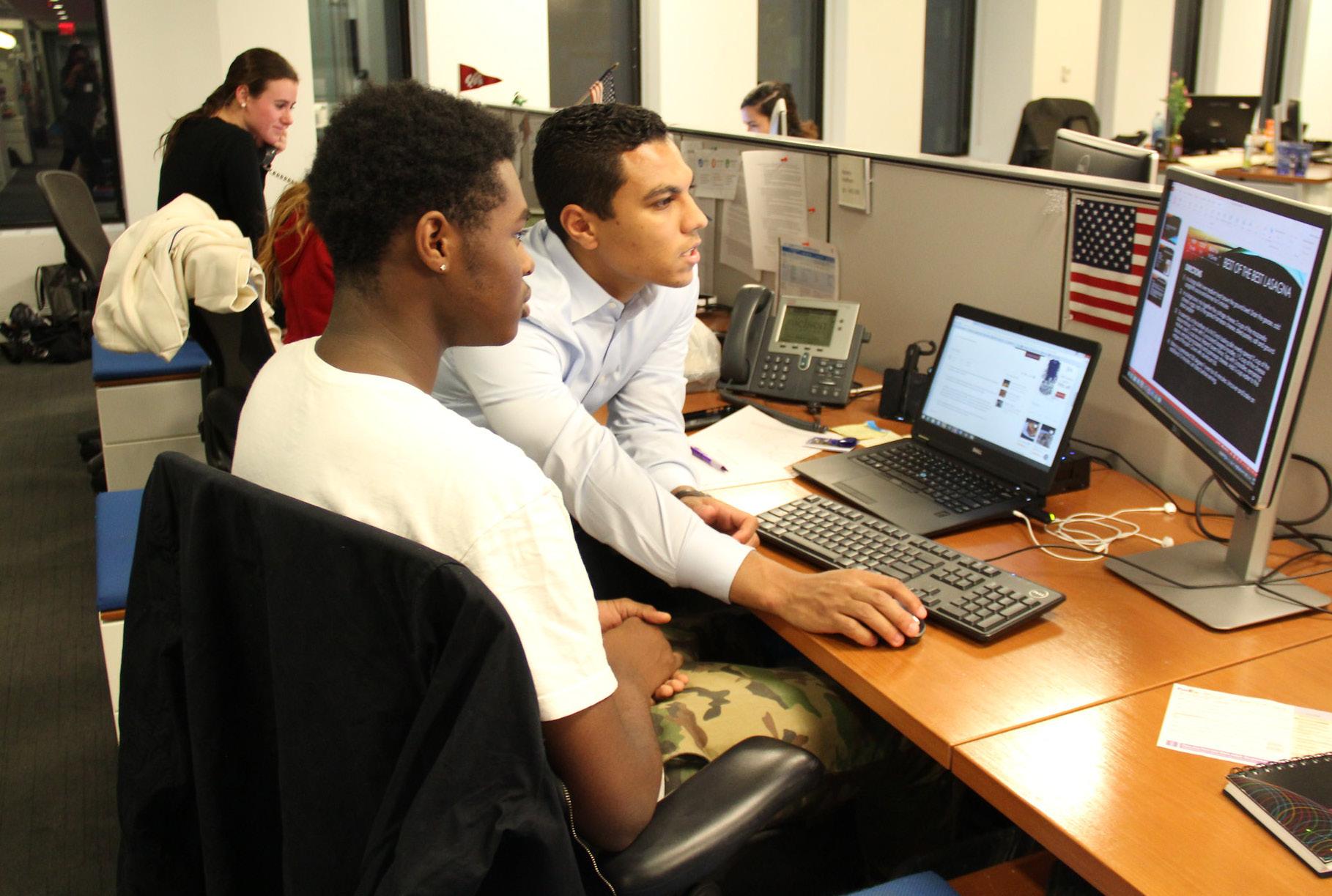
3 minute read
INCREASED ACCESS TO LONGTERM SUPPORT
Youth report gaining increased value from the mentoring relationship the longer it lasts.48 Additionally, young people have generally positive perceptions of mentoring and believe in the power of connections to help them achieve their goals but are also interested in their adult mentor’s motivations for mentoring.49 Consistent, sustained relationships developed through a work-based learning opportunity are better positioned to authentically build trust between mentor and mentee while fostering greater long-term benefits.50
The connection between a mentor and mentee can serve as the center point in a web of connections, that have the ability to positively impact a young person’s long-term success. A mentor is uniquely positioned to connect the mentee to people in their network, which supports a young person in creating “weak ties”, a type of connection that is especially useful in the job search.51 This is critically important for young people who reside in “high unemployment areas”, where there are fewer adults who can make introductions that expand career awareness and job prospects for youth.52 A sustained relationship between a mentor through a work-based learning opportunity offers a consistent support and direct access to an anchor throughout a young person’s career journey while also expanding their network over time.
Advertisement
But, the lack of access to mentoring relationships is a pressing problem: 1 in 3 young adults surveyed nationally as part of a 2014 Mentor study reported not having access to a mentor of any kind.53 This fact, coupled with our increased understanding about the role social capital plays in long-term
success, especially for low-income youth,54 requires a City-wide solution that balances in-demand skills development with our referral based, relationship-centric job market.
Beyond the opportunities to directly connect to the next generation of potential employees, bringing PYD principles into the corporate space through a relationship-centered program has the potential to foster a greater sense of inclusion and more equitable accessible access to living
“My Big Peter and the Workplace Mentoring Program exposed me to office culture and what a professional setting looks like. I’ve carried all the skills I’ve learned through my first year of college.” - Little Brother Osmar
wage career opportunities.55 Investing in these programs during adolescence versus later-in-life pays dividends. Research suggests that PYD during this stage of life is particularly linked to selftransformation, including “enhanced awareness of their potential.”56
Designing programs that center relationships can happen at any time by leveraging technology, which must include recognizing and solving for the digital divide that exists in our City – something that particular corporations in our largest sectors are often uniquely positioned to do given their access to equipment and capital. The opportunity to implement this programming becomes even greater and more feasible in a post COVID-19 environment with the return to in-person interactions.
Beyond resolving for physical resources, the biggest investment corporations need to make in building our next generations of leaders is time. Data continues to support that a longer mentoring relationship is more beneficial and more impactful to the long-term success of a young person.57 Investing time produces a more trusting relationship, and these more trusting connections have a greater opportunity to positively impact a young person’s social capital.58 If corporations are truly inserted in creating pathways for all youth, especially unrepresented youth, to access upwardly mobile careers, the investment of time is a necessary, critical commitment to expand low-income young adults’ network of relationships and access to resources.59
It is particularly important to make these investments now as COVID-19 vaccination distribution is causing conversations to shift towards New York City’s recovery. The recent announcement that New York City will receive $6.1 billion as a result of the federal stimulus underscores that we are at a unique moment in time to “Build Back Better” with a focus on equity and economic mobility for the next generation. A core tenant of this recovery must focus on the future we hope to build for our City’s youth.

Big Brothers Big Sisters of NYC Workplace Place Mentoring Program, Spring 2017






